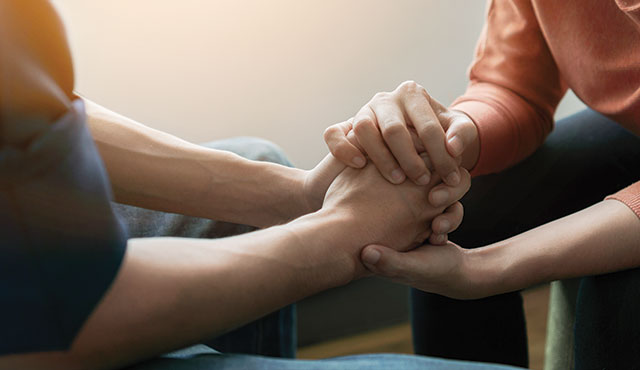I was diagnosed with major depression when I was 38 years old, but I’ve had bewildering, frightening, and inexplicably dark moods all my life.
It took years to understand and accept that, like my father, I am mentally ill. Depression – in the form of deep sadness and a paralyzing fear of failure – has dramatically affected my life and the people who love me.
*
Major depression, bipolar disorder, and borderline personality disorder are three of the most commonly diagnosed forms of mental illness. Though they are documented medical conditions – just like diabetes, heart disease, and hypertension – mental illnesses carry a deep social stigma.
Mentally ill people like me feel ashamed, even though our condition isn’t our fault.
Admitting to having a mental illness is scary. It is illegal and cruel, yet many workplaces actively discriminate against the mentally ill. Parents, siblings, children, and spouses often feel embarrassed and helpless when a family member is diagnosed with a mental illness. So, most mentally ill people keep their condition private. Many fail to seek medical help.
I’ve had bosses who thought depression is a myth. One friend told me it was ‘all in my head’ and advised me to ‘decide to be happy.’ People in my life have expressed fear, denial, and even disgust.
*
My husband finally convinced me to seek professional help. I found a psychiatrist, began seeing a therapist, and was prescribed Prozac. The drug and therapy helped me cope with life again. I was fine for more than 15 years.
On Saturday, July 3, 2013 I was assaulted by a deep fear of leaving home. As the hours passed that day, I grew increasingly agitated, upset, and fearful. I didn’t know what was happening. I slipped into a nearly comatose state as Saturday passed into Sunday.
I could not eat, I did not sleep, I found it impossible to concentrate on anything, even a mindless television show or a fluffy magazine article. I couldn’t carry on a conversation. I felt like a zombie. I stared into space and often sat still and cried for hours. I told my husband that I wouldn’t actively try to kill myself, but would feel relieved if a bus hit and killed me.
I was having what they used to call a nervous breakdown. My antidepressants had stopped working.
It was the worst period of my life. When the depression finally lifted after five weeks on disability – thanks to intensive talk therapy and a change of medications – it was like leaving a dark room and stepping into the sunlight of a new day.
*
Today I am on an effective ‘cocktail’ of three different medications that keep me on an even emotional keel. I have a great psychiatrist I see every three months, and an amazing therapist I visit every few weeks. I’ve been functioning, successful, and happy for several years.
I’m thankful that the Diocese of Orange is actively combatting the stigma of mental illness with seminars, conferences, support groups and prayer. Bishop Kevin Vann’s work with Rick Warren and Saddleback Church has done much to reduce stigma and bring mental illness out of the darkness. I pray that we continue to shine a light on this debilitating condition to remove the stigma we sufferers feel about being mentally ill.
The Diocese of Orange is home to the New Hope Crisis Center, a starting place for with anyone with mental health questions. The crisis hotline is 714-New Hope. More resources can be found at newhopenow.org. The Diocese’s Office of Pastoral Care for Families in all Stages also can assist those suffering from mental health challenges, as well as those who support them.

